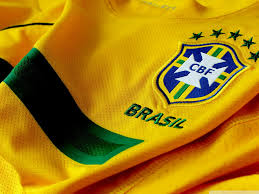By Andrew Warshaw
January 14 – In a major boost for the regulation of the international transfer market, third-party ownership of footballers will become illegal in Brazil from May 1, bringing the country into line with a global FIFA ban on the practice that comes into effect at the same time.
The practise of economic rights of players being shared amongst private investors (and now often investment funds) has been a common practice in South America and recently spread to Europe amid growing concern over how the money changes hands and how much actual transfer fees are.
Many clubs and leagues argue that TPO provides vital revenue that smaller clubs need in order to compete. Brazilian club football is in a desperate position with the top 20 teams owing more than five billion reals (£1.25 billion) but the country will now conform to the new FIFA rules, which allow for any deals involving TPO and signed before May 1 to be valid for a maximum of one year only.
For many years investors have owned a stake in the transfer rights of a majority of Brazilian top division players and the ban seems certain to have a major impact.
UEFA boss Michel Platini has savaged TPO arguing that it “threatens the integrity of our competitions, damages football’s image, poses a long-term threat to clubs’ finances and even raises questions about human dignity.” But in October, the head of the Spanish League, Javier Tebas, explained how his country relied on TPO as an integral part of the way the clubs did business and denounced FIFA’s plans to ban it even though critics say it drives money out of the game.
Contact the writer of this story at moc.l1734870240labto1734870240ofdlr1734870240owedi1734870240sni@w1734870240ahsra1734870240w.wer1734870240dna1734870240

